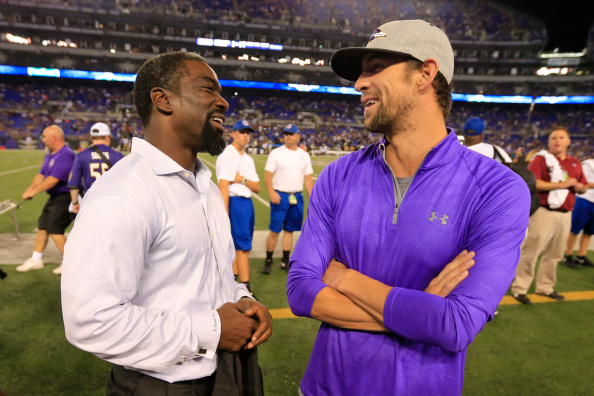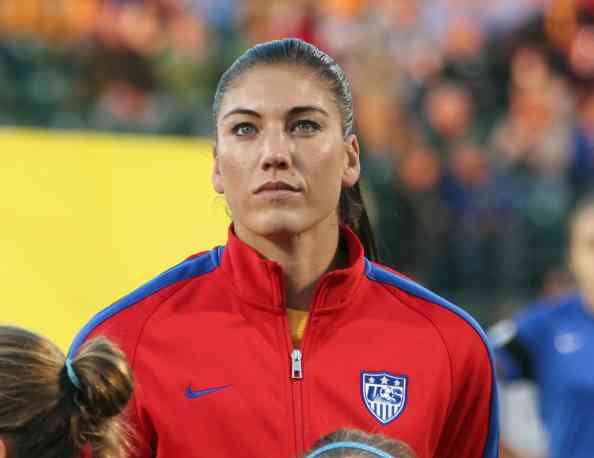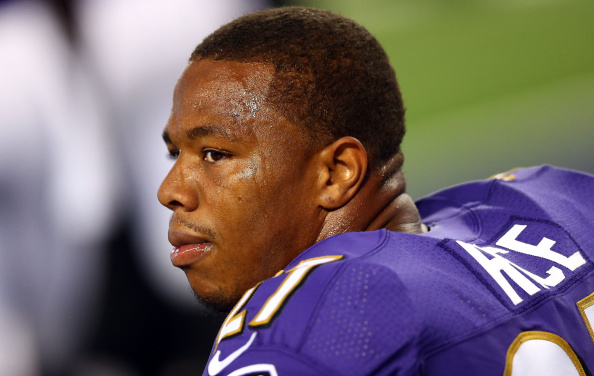This space believes in making things simple and easy. So here it is: Michael Phelps should swim at the 2015 world championships in Kazan, Russia. USA Swimming suspended Phelps for six months in the aftermath of his drunk-driving incident in Maryland last September. That suspension has run, and he will open his 2015 season by swimming this week at a meet in Mesa, Arizona. In addition to that suspension, Phelps and USA Swimming agreed — and “agreed” is putting a spin on it — that he would not be on the U.S. team in Kazan. Now the time has come to fix that.
For every reason you can come up with to keep Phelps off the Kazan team, there are better reasons to send him.
First and foremost, there is this:
The American story is, and forever will be, one of redemption. This is who we are. This is the classic, everlasting story of our country.
In the United States of America, we get not only a second chance, but a third, a fourth, a fifth and more.
If anyone has earned that chance, it’s Michael Phelps.
Phelps is one of the great sports heroes of our time, an imperfect human being — we all are — who has won 22 Olympic medals, 18 of them gold, inspiring literally millions of boys and girls and grown-ups, too.
About this there can be no debate.
Disclaimer: I co-wrote Phelps’ 2008 best-selling book. In writing this column, I have not shared even one word with him.
To recap how we got here, and why there must be reconsideration — not just for Phelps but for USA Swimming and even the U.S. Olympic Committee — that Phelps go to Russia:
On Sept. 30, 2014, Phelps was stopped by Maryland police going 84 in a 45 mph zone. His blood-alcohol level registered 0.14.
This was Phelps’ second DUI offense in 10 years.
For legal purposes, the first DUI, when Phelps was a teenager, was completely immaterial during the second case. For the record, he did 18 months probation. USA Swimming took no action.
In 2009, a few months after going 8-for-8 at the Beijing Games, Phelps, then 23, was photographed with his face in a bong. The picture created a major international stir. USA Swimming suspended him for three months.
Then came the arrest last September. Phelps was arrested amid the media frenzy ignited by the cases involving the NFL players Ray Rice and Adrian Peterson and, to a lesser extent, the soccer star Hope Solo, each enveloped in a domestic violence incident.
To be clear, is Phelps super-fortunate no one got hurt? Or worse? Yes, a thousand times over.
Now: was Phelps involved in a domestic violence case? No.
Was it thus apples to apples? No.
Was it his incredibly poor judgment to get behind the wheel of a car, impaired, when the harsh media spotlight had turned on high-profile athletes? Yes.
Was there thus pressure on USA Swimming and the USOC, especially given the intensity of the focus on the Rice and Peterson matters, in particular, to bring the hammer down on Phelps? Absolutely.
Was Phelps in any sort of position, given that intensity, to argue at the time — even though he and everyone else involved knew that the best thing for him was to go to treatment, which was where he was, in fact, headed — about any of the elements of the six-month plus Kazan deal? Hardly.
Was there, as this space pointed out at the time, a rush to judgment? You bet.
When can it be said that a rush to judgment ever proves positive?
Now that time has run:
Rice and the Baltimore Ravens have settled his grievance for $1.588 million, and Rice is eligible to play again in the NFL.
Peterson is eligible for reinstatement on Wednesday.
The domestic violence charges against Solo were dismissed in January. A few days later, she was back in the news in connection with a drunken driving incident involving her husband, ex-NFL player Jerramy Stevens, that led US Soccer to suspend her for 30 days.
At the Algarve Cup in Portugal in March, a key tune-up for this summer’s women’s World Cup, who was that making the incredible late-game save to preserve her 81st international shutout in leading the United States over France, 2-0, for the title? For sure — Solo.
To be clear, one of the reasons to see Phelps swim in Kazan is what would likely happen in the pool. Reports from swim insiders say Phelps is hugely motivated — he is said to be practicing the way he did in 2007 and 2008 — and there is perhaps no sight in sports like Phelps roaring down the pool in the back half of his races.
There is also this: the U.S. team needs Phelps if it has any hopes of winning the 400 freestyle relay the way it did in Beijing in 2008. That’s the race he watched — from the stands — with dismay at the 2013 world championships in Barcelona. You only get so many chances to practice this relay before Rio in 2016.
Beyond that, there is this:
In a weird way, the September DUI arrest may have been the best thing that ever happened to Phelps. It got him to treatment. It forced him to look, and hard, at who he is and what he is doing.
In the months since leaving treatment, he has gotten engaged. He has been a model citizen. Everyone who has been in contact with him has remarked about how he has grown up.
In London, and that was before all this, Phelps was a veteran team leader at the 2012 Games. Wouldn’t you want Phelps 2.0, and this kind of hard-won life experience, on your team in Kazan?
Having reviewed the USA Swimming selection criteria, it is abundantly plain that it would indeed be a complex process — a number of dominoes would need to fall in just the right way — to get Phelps on the Kazan team. But, as always, where there’s a will, there’s a way.
Now for some real-life politics, because there are plenty of intersecting currents to factor into the dynamic as well:
USA Swimming and FINA, the international governing body for swimming, are currently not — shall we say — on the best of terms. There are a variety of reasons why, but for this conversation it’s enough to leave it at this: things are business-like.
And to not have Phelps in Russia? FINA is not happy to begin with. Now you throw in the prospect that the best American swimmer ever would not be at its marquee event?
Everyone knows, meanwhile, that the USOC wants to put forward a Summer Games bid for 2024.
Not everyone knows, however, that John Leonard, who is an influential U.S. swim coach, has for months now been leading a largely behind-the-scenes campaign aimed at reforming FINA.
FINA has opted not to respond in public to the Leonard campaign.
The point of bringing up Leonard’s campaign here is not to debate its merits. It’s to put it in a different context.
The president of FINA, Julio Cesar Maglione of Uruguay, was just this past weekend elected interim president of the Pan-American Sports Organization.
Maglione is a key and dependable ally of International Olympic Committee president Thomas Bach’s.
Maglione is 79. Elected FINA president in 2009, he was re-elected in 2013. Now there is serious talk that he wants a third term; to do so would require a rules change.
Leonard’s campaign is wondering, among other things, how this can be.
The answer: it’s all part of a complex geopolitical strategy involving interests beyond Maglione with close ties to the IOC president. This strategy might take all of a presumed third Maglione third term to play out. Or just part of it. In that scenario, which leadership at USA Swimming understands full well already, U.S. influence at FINA's top levels might well be further considerably diminished.
This is no small matter. For revenue purposes, swimming is now what's called a Tier "A" sport in the Olympic movement, along with gymnastics and track and field -- in large measure because of the import of Phelps.
Leonard is doing what he justifiably feels is in the right.
In the meantime, the Leonard campaign is not doing a 2024 U.S. Olympic bid any favors — see above, FINA not happy with USA Swimming to begin with.
Moving on:
Understand always that Vladimir Putin made the first call to Bach when Bach was elected IOC president. These Kazan swim championships are a key element in Putin’s strategy to make Russia a world sports destination — along with Sochi 2014 and soccer’s 2018 World Cup.
To reiterate: to not have the biggest star in swimming at the biggest show in swimming? How in the world, come voting time for the 2024 bid, is that going to help the United States? Don’t fool yourselves. Russia is a big deal in the Olympic sphere and people have long memories when it comes time to vote.
Moving on once more:
Katie Ledecky, Missy Franklin and Ryan Lochte are awesome swimmers. But without Phelps, who in the United States is likely to watch a swim world championships — from Kazan or anywhere — on television?
Answer: virtually no one.
Need evidence? Lochte is, truly, a great guy. But there's a reason his reality-TV show was quickly canceled.
If Phelps doesn’t swim in Kazan, it’s a simple matter to look at the calendar and see he would have to swim instead at the U.S. nationals in San Antonio. They’re Aug. 6-10. The swim schedule in Kazan runs Aug. 2-9. Why the two events run simultaneously is a long, and separate, story.
A San Antonio nationals would feature Phelps, Allison Schmitt, Natalie Coughlin and dozens of others — apologies — recognizable mostly to their coaches and parents.
Phelps has for more than a dozen years now said his goal is to grow the sport of swimming. How would limiting him to San Antonio accomplish any of that?
That’s not just a rhetorical question.
It’s way better all around for leadership at USA Swimming to take a deep breath, work out the complexities of the selection process, acknowledge the obvious and get the guy who virtually by himself since 2000 has elevated swimming into the top tier in the Olympic scene back where he belongs.
With the best in the world.







